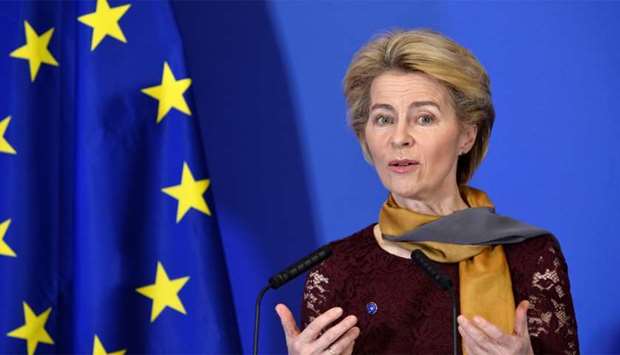New European Commission President Ursula von der Leyen emphasised the importance of a stronger Europe as she was sworn into office on Sunday.
The ceremony completed a process of renewal at the helm of the European Union that began with EU-wide elections in May.
It marked the 10th anniversary of the EU's Lisbon Treaty and von der Leyen said she and her team had a ‘responsibility towards our children... to leave them a Union that is stronger than the one we have inherited.’ Europe is a ‘treasure that we have inherited,’ the veteran German politician said, adding that, ‘it is our duty to preserve this treasure.’
Sunday also marks the start of European Council President Charles Michel's term in office. He took part in a handover ceremony with his predecessor Donald Tusk on Friday.
‘We have overcome many obstacles to be standing here, prosperous and free in the heart of Europe,’ said Michel at the ceremony with David Sassoli, the new president of the European Parliament and the head of the European Central Bank (ECB), Christine Lagarde.
The European Commission was originally supposed to start work on November 1 but the European Parliament rejected three candidates, delaying the process.
Von der Leyen, Michel and Lagarde were all nominated by EU leaders as part of a personnel package in July.
However, the new commission chief has had an uphill struggle since then, only narrowly surviving her confirmation vote in parliament and facing several hurdles to compose her team of top officials from each member state.
The final commission line-up was approved by parliament on Wednesday and the new members were formally appointed by EU leaders the following day.
The commission is responsible for proposing new legislation and ensuring EU rules are adhered to. It has a staff of around 32,000.
Britain refused to nominate a member for the new commission, as it is due to leave the EU by January 31.
Von der Leyen wants see the EU play a more active role on the world stage, commit itself legally to carbon neutrality by 2050 and beef up its digital capacities and infrastructure.
These are ambitious plans, but decision-making in the European Union is notoriously slow and forging consensus can be painstaking.
Her goal of a totally gender-balanced EU executive top team already fell by the wayside in the tussle between EU lawmakers and member states to appoint European commissioners.

